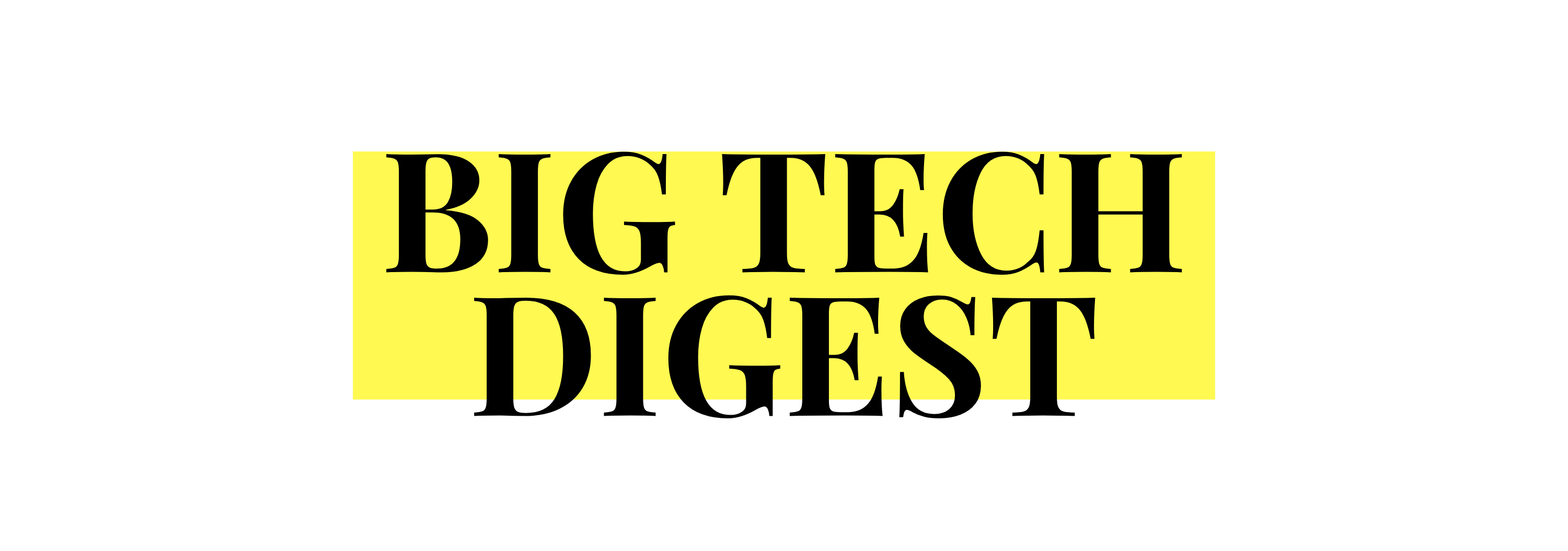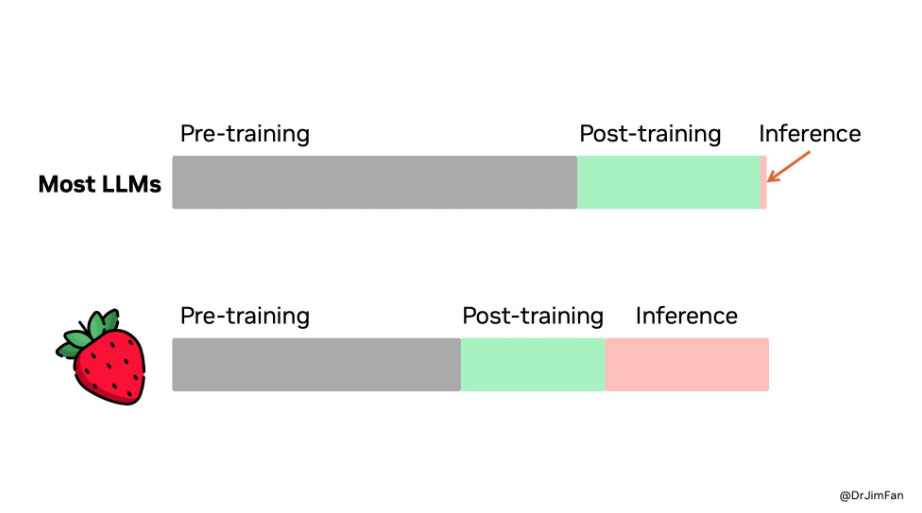Week 39, 2024

Key Developments
1
Intel will spin off its foundry business, instead of selling it.
- This is part of Intel's recent restructuring plan.
- The foundry division will become an independent subsidiary.
- Intel has invested $25 billion annually in foundry for two years.
- Returns on this investment have been minimal.
- There was speculation about selling the foundry business.
- The spin-off shows Intel's commitment to continue foundry operations.
- Intel aims to attract external funding for the foundry business.
- Intel secured a chip production deal with Amazon.
- And they received an additional $3.5 billion in U.S. government subsidies.
- Yet Wall Street remains skeptical about Intel's recovery.
- The foundry market is moving towards a 'TSMC-dominated' structure.
2
Qualcomm is exploring the acquisition of Intel.
- WSJ reports Qualcomm aims to acquire all of Intel.
- This goes beyond Reuters' earlier report of Qualcomm seeking to buy parts of Intel.
- Qualcomm, the mobile chip leader, has long been interested in Intel's PC and server chip business.
- Intel's stock price has plummeted 60% this year.
- Intel's market cap is now about half of Qualcomm's, making the acquisition conceivable.
- Realistically, the deal faces significant challenges.
- Qualcomm's cash assets are only about 10% of Intel's market cap.
- Intel's workforce is more than double Qualcomm's, even after planned reductions.
- Intel's x86 license agreement with AMD could be an obstacle.
- Antitrust reviews are expected to be the biggest hurdle.
- The deal would require approval from both U.S. and Chinese authorities.
- Both companies have had acquisition deals blocked by Chinese antitrust authorities before.
- Some view Intel, once the world's top chipmaker, being an acquisition target as a "humiliation".
3
TSMC has started its first semiconductor production in the US.
- The Arizona Fab 1 has begun operations.
- It uses a 4nm process to produce A16 chips for iPhones.
- This start is at least 4 months ahead of schedule.
- Initial production yield is lower than in Taiwan factories.
- But it is expected to match Taiwan levels within months.
- Fab 2 construction has already begun.
- It is expected to start production around 2028.
- Cultural differences between Taiwanese managers and US workers are a concern.
- NYT reported on US employees quitting due to cultural clashes.
- TSMC is known for its strict corporate culture and high work intensity.
- TSMC's work intensity is notorious even in Taiwan, where long hours are common.
- How TSMC manages these cultural differences will significantly impact its US operations.
4
iPhone 16's initial sales are lower than expected.
- Pre-orders are down 13% compared to the previous model.
- Lack of AI features and hardware innovation are cited as main reasons for poor sales.
- 'Apple Intelligence' was not launched with iPhone 16 as anticipated.
- Current AI features are in beta, needing more time for full implementation.
- Hardware changes are minimal compared to the previous model.
- Demand for higher-end Pro lineup is particularly low.
- Tim Cook says, "It's just the beginning, let's wait and see."
- Apple has already started employee discounts to boost sales.
- Xiaomi has overtaken Apple as the world's second-largest smartphone maker by market share.
5
OpenAI has released 'o1', a model with enhanced reasoning abilities.
Reasoning AI
- It's pronounced as "o-one".
- The model was internally known as 'Strawberry'.
- o1 is the first in the 'Strawberry' series.
- It breaks down complex problems into steps for logical approach.
- The model focuses on science, code, math generation and debugging over language tasks.
- It showed doctoral-level abilities in physics, chemistry, and biology tasks.
- o1 achieved 83% accuracy in International Mathematical Olympiad, up from 13% of previous models.
Slow by design and expensive
- It's slower than GPT-4 due to its deep thinking process.
- o1 costs 4 times more than GPT-4 to run.
- The high cost is due to additional hidden processes and computing.
- It's designed more for scientists and developers than general users.
- GPT-4 is still more suitable for most queries.
Not quite AGI
- CEO Altman cautioned against overhyping o1.
- He emphasized o1 is not AGI, just a beginning.
- Hallucinations are significantly reduced but not completely eliminated.

6
OpenAI aims to secure $11.5 billion in new funding.
- $6.5 billion through investments and $5 billion via debt financing.
- Thrive Capital is leading the investment round.
- Tiger Global, Khosla, and Sequoia are expected to participate.
- Big tech companies like Microsoft, Apple, and Nvidia are also exploring participation.
- The investment is conditional on OpenAI converting to a for-profit company.
- A key condition is removing the profit cap for investors.
- CEO Altman hinted at a likely change in company structure next year.
- He suggested the company will move closer to a traditional for-profit model.
- If converted to a for-profit, OpenAI's market value could soar to about $150 billion.
7
Microsoft and BlackRock are creating an AI infrastructure fund.
- The fund is a response to increasing AI power demands.
- It aims to strengthen AI supply chains and clean energy sourcing.
- The fund's target size is $30 billion.
- It may expand to $100 billion with external funding.
- BlackRock's CEO Fink called it a "multi-trillion dollar long-term investment opportunity".
- Most investments will be made in the US.
- Nvidia will advise on data centers and other infrastructure.
- MGX, a UAE-backed investment firm, will participate as a GP.
- Middle Eastern oil-rich countries are increasing AI investments for economic diversification.
- The US wants this money invested domestically rather than in China.
- Saudi Arabia's PIF is discussing a $40 billion AI investment with Andreessen Horowitz.
- The Biden administration is considering allowing export of Nvidia's latest chips (H200) to Saudi Arabia.
8
Microsoft is pushing to reactivate a decommissioned nuclear plant to meet AI power demands.
- Constellation Energy plans to restart commercial operation of Three Mile Island Unit 1 in Pennsylvania by 2028.
- Three Mile Island was the site of the worst nuclear accident in US history.
- The plant was shut down in 2019 due to low economic viability.
- Constellation Energy is the largest nuclear power company in the US.
- Microsoft signed a 20-year exclusive contract for all the plant's power.
- The plant will supply power exclusively to Microsoft's data centers.
- This is Microsoft's first dedicated nuclear plant for its facilities.
- Nuclear power is attractive to tech companies for its high stability.
- Nuclear power offers 24/7 reliability needed for data centers.
- Renewable energy sources like solar and wind have fluctuating output based on weather.
- Amazon also operates a nuclear-powered cloud campus in Pennsylvania.
- OpenAI has invested in SMR developer Oklo and fusion startup Helion Energy.
- Nuclear waste disposal remains a challenge.
9
Meta is creating new "teen accounts" for users under 18.
- Meta will automatically switch Instagram accounts of users under 18 to "teen accounts".
- This is part of Meta's recently announced "Youth Safety Policy".
- Teen accounts can't view sensitive content like sexual material or self-harm.
- These accounts can only receive messages from followers or connected people.
- Parental supervision features are being enhanced.
- Parents can set daily time limits and view message recipients.
- Meta says it can track users who lie about their age.
- This move is a form of self-regulation in response to public criticism.
- There's growing concern about social media's negative impact on youth.
- Last year, 33 US states sued Meta, and the EU launched an investigation.
- Instagram's CEO expects a significant decrease in teen users.
- He believes short-term losses will lead to long-term business benefits.
- The goal is to gain parents' trust and reassure them about the platform's safety.
10
Amazon is ending remote work completely.
- The policy takes effect from January 2nd next year.
- Employees must work from the office 5 days a week, barring special circumstances.
- Currently, Amazon requires a minimum of 3 days in-office per week.
- Amazon is the first big tech company to demand 5-day office attendance.
- The announcement faced immediate backlash from employees.
- Some employees expressed intentions to quit or demanded pay raises.
- Experts suggest this could be a strategy to encourage voluntary resignations.
- Studies show strict return-to-office policies increase attrition among senior staff.
- This move may prompt other companies to mandate in-office work.
- Google, Apple, and Meta have already implemented 3-day office weeks since last year.
- A KPMG survey of 400 US CEOs found 80% expect full-time office return within 3 years.
Other
AI
- Sam Altman leaves OpenAI's safety committee, which will operate as an independent body.
- OpenAI hired a former Coursera executive to expand AI use in schools and classrooms.
- Google added an 'AI debate' podcast feature.
- Microsoft unveiled 'Copilot Pages', an AI collaboration tool.
- Oracle's stock surged 11% due to AI-related gains.
- Alibaba released a new AI model called 'Qwen 2.5'.
Chips
- Google shifts from Samsung to TSMC for production of next-gen AP.
- TSMC buys ASML's latest equipment at a discounted price.
- Nvidia launches AI Aerial to optimize wireless networks.
E-commerce
- Amazon unveiled 'Amelia', an AI assistant for sellers.
Social Media
- Meta's AI is scraping users' photos and posts.
- X moves its headquarters near Austin, Texas.
- TikTok deleted the account of Russian state media 'Sputnik'.
Content/Entertainment
- Microsoft lays off 650 employees from its Xbox division.
- Adobe provides weak guidance for the fourth quarter.
Device/Hardware
- Apple's Vision Pro sales have plummeted.
- Apple received FDA approval for hearing aid functionality in AirPods.
- Apple is pursuing a credit card partnership with JP Morgan.
- Microsoft is partnering with Anduril to develop combat goggles for the U.S. Army.
EV/Autonomous Vehicles
- Tesla has produced 100 million 4680 batteries.
- Tesla begun hiring employees in the Philippines.
- Uber expands its partnership with Waymo.
- BYD now has the world's largest R&D workforce.
Space
- SpaceX conducts the first civilian spacewalk.
Energy/Environment
- Meta buys 3.9 mln carbon credits in Latin America.
- Google signs a 128MW solar power purchase in Texas.
Policy/Regulation
- Alphabet's $1.66 billion EU antitrust fine has been overturned.
- U.S. government met with CEOs of major AI companies.
Etc
- Microsoft announces a $60 billion share buyback program and a 10% dividend increase.
- Microsoft hires a former GE CFO as its new Chief Operating Officer.